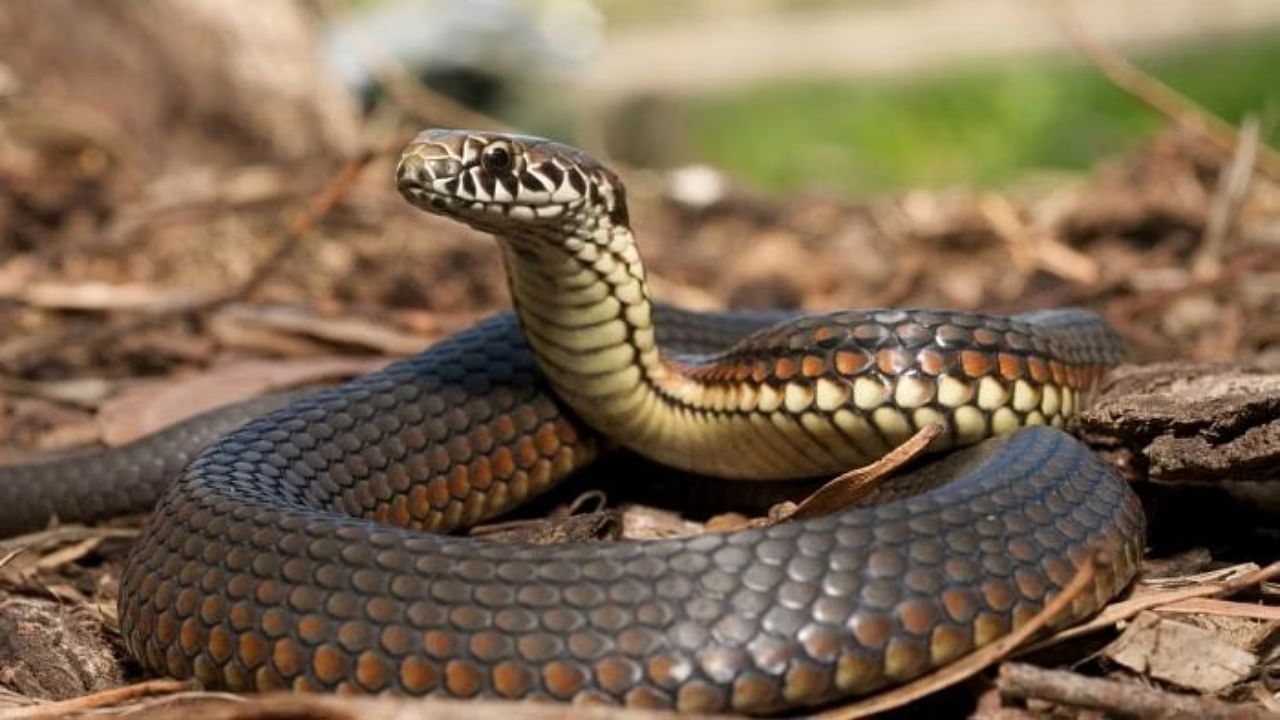
Representative image of snake.
Credit: iStock Photo
The unprecedented heavy rains and flash floods across Karnataka this year have had a less-talked-about effect: a rise in snakebites and related deaths.
This year, the health department has recorded a total of 10,620 snakebites and 80 deaths, with the highest number of cases in Hassan (722) and the deaths in Tumakuru (nine).
In 2023, the state reported 6,587 snakebite cases and 19 deaths due to snake bites, with the highest being 812 cases in Chikballapur and five deaths in Tumakuru.
In the last week, when the Kendriya Vihar apartment complex and Tata Nagar in northern Bengaluru were flooded, residents and local volunteers alerted one another of the presence of snakes in the water.
While there are several factors at play for the rise in the reported snakebite cases — including the state declaring snakebites as a notifiable disease this year — snake experts attribute this year's phenomenon to incessant heavy rains and waterlogging across the state, following a harsh summer. This is believed to have played a part in flushing the snakes out of their nests and forcing them into residential areas and farmlands.
Farmers also fall victim to snake bites as they get out into the fields to harvest the kharif crops during September-October.
As a result, cases spiked to an average of 1,300 between May and October from an average of about 500 cases during January-April.
Vattam Adithya, a Ballari-based snake rescuer and expert, explained that expanding urban dwellings and residential areas bordering forests, lakes and fields — snakes' natural habitats — are forcing them out.
"Without abundant natural habitats, snakes are forced into sewage drains and small rivers to hunt rats and frogs. When water gushes into these crevices and into people's homes, they are naturally swept out into the open," Adithya said.
He added that the cases in June and July were most likely due to baby snakes that hatch during the season, while cases before that were likely due to adult snakes. This could explain the slightly higher bite-to-death ratio during the monsoon — baby snakes have less control over their biting instincts while adult snakes are known to inflict dry bites without injecting venom.
Dr Nagaraj V N, medical director of a hospital in Hoskote, who specialises in snakebite treatment, explained that the high caseload between May and September leads them to procure more anti-snake venom (ASV) locally during these months. "Many government hospitals are ill-equipped to manage snakebite cases, with inadequate ASV," he said.
The Karnataka State Medical Supplies Corporation Limited (KSMSCL), which is the nodal agency for procuring drugs and medical supplies, said it had ample stocks of anti-snake venom in its warehouses.
According to a senior official, 31 warehouses across the state have 26,075 units of ASV, about 50% of their indent supplied recently. "We will get the rest of the indent shortly," she said. However, the stock available in government health institutions as of this week was a paltry 3,875 units.
The health department, meanwhile, is positive about efforts to curb snakebite deaths.
"We are doing all we can to reduce snakebites and prevent deaths, including increasing awareness in schools and villages. We are ensuring that anti-snake venom is supplied even to sub-centres and training paramedical staff so they can administer the anti-snake venom before shifting patients to primary health centres,” said Dr Ansar Ahmed, Project Director, Integrated Disease Surveillance Programme.